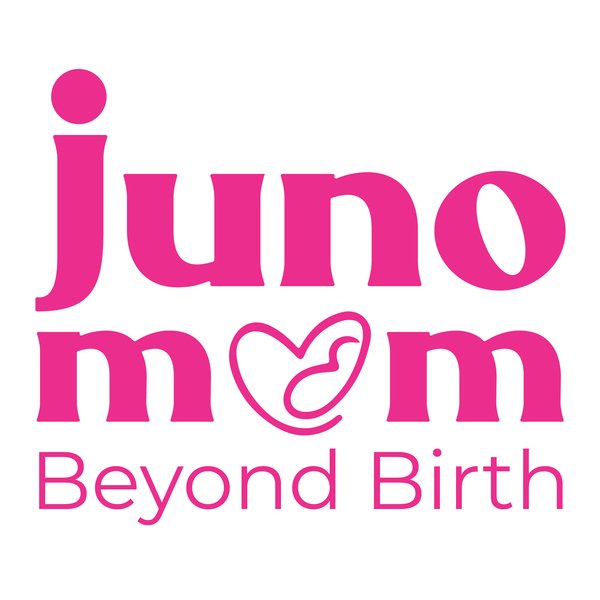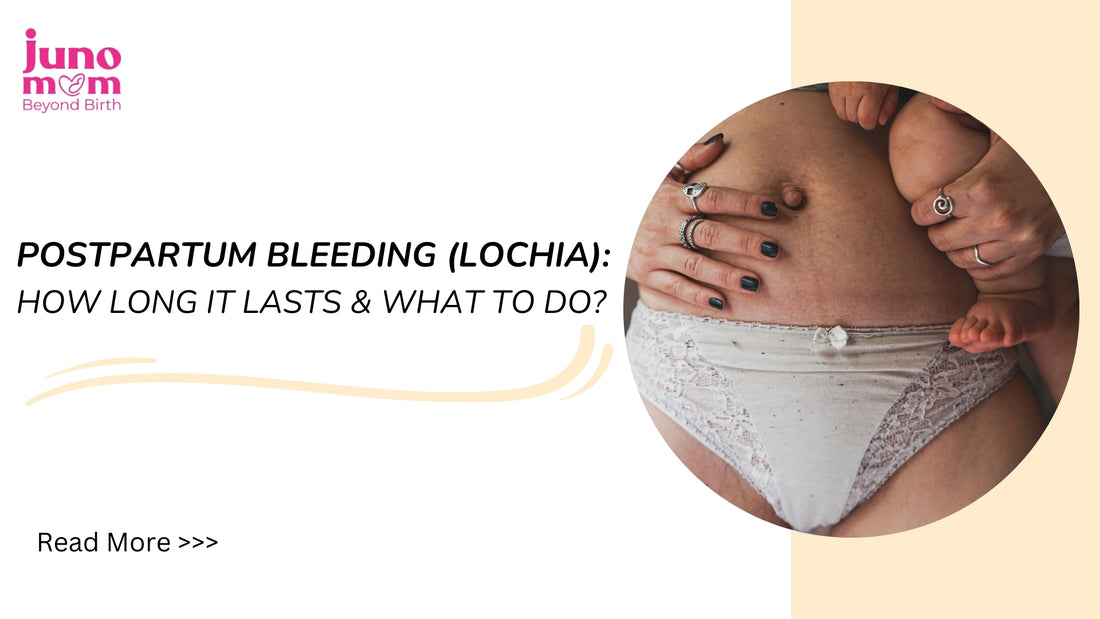Whether you have a C-Section or a Vaginal delivery, one of the most common experiences after childbirth is postpartum bleeding, also known as lochia. Understanding what lochia is, how long it lasts, and what you can do to manage it can help new mothers navigate this phase with confidence.

What is Postpartum Bleeding (Lochia)?
Lochia is the vaginal discharge that occurs after childbirth. It consists of blood, mucus, and uterine tissue that your body sheds as it heals from pregnancy and delivery. This bleeding is a natural part of the postpartum recovery process, as your uterus shrinks back to its pre-pregnancy size and expels any remaining tissue.
How Long Does Postpartum Bleeding Last?
The duration of lochia can vary from woman to woman, but it generally follows a predictable pattern:
-
First 3 to 4 Days (Lochia Rubra): During the initial days after childbirth, lochia is typically bright red and may include small clots. This stage, known as lochia rubra, resembles a heavy period.
-
Next 4 to 10 Days (Lochia Serosa): As the days progress, lochia gradually lightens in color, shifting from red to pink or brown. This stage is called lochia serosa and indicates that your body is healing.
-
Up to 6 Weeks (Lochia Alba): By the end of the second week, lochia becomes lighter and more yellowish or white. This final stage, lochia alba, can last for up to six weeks after delivery.
What to Expect During Postpartum Bleeding
It’s important to note that lochia is usually heaviest during the first few days after birth, especially if you’ve had a vaginal delivery. However, even if you had a cesarean section, you’ll still experience postpartum bleeding, though it might be less intense.

Some common symptoms during lochia include:
-
Clots: Small clots are normal during the initial stage, but if you notice large clots or a sudden increase in bleeding, it’s essential to contact your healthcare provider.
-
Odor: Lochia typically has a slightly earthy smell, but if you detect a foul odor, it could be a sign of infection, and you should seek medical advice.
-
Cramping: Mild cramping is normal as your uterus contracts, especially during breastfeeding. These contractions help reduce bleeding and speed up recovery.
Tips to Manage Postpartum Bleeding
Managing postpartum bleeding involves taking a few simple steps to ensure comfort and hygiene:
-
Use Maternity Pads: During the initial days of heavy bleeding, it’s best to use maternity pads designed for postpartum care. Avoid tampons or menstrual cups, as they can introduce bacteria and increase the risk of infection.

-
Rest and Hydrate: Your body needs time to heal, so prioritize rest and stay hydrated. Overexertion can increase bleeding, so take it easy during the first few weeks.

-
Practice Good Hygiene: Change pads regularly and keep the perineal area clean to prevent infections. Using witch-hazel wipes or sitz baths can also soothe any discomfort.
-
Monitor Your Symptoms: Keep an eye on the color, consistency, and volume of your lochia. If you experience heavy bleeding that soaks through more than one pad per hour, large clots, or signs of infection (such as fever or foul-smelling discharge), contact your healthcare provider immediately.
When to Seek Medical Attention
While postpartum bleeding is a normal part of recovery, there are times when it’s crucial to seek medical attention:

-
Heavy Bleeding: If you’re soaking through a pad every hour for several consecutive hours, this may indicate postpartum haemorrhage, a serious condition that requires immediate care.
-
Large Clots: Passing large clots (bigger than a golf ball) can be a sign of complications and should be reported to your doctor.
-
Fever and Chills: A fever, accompanied by chills, abdominal pain, or foul-smelling discharge, could indicate an infection that needs prompt treatment.
-
Persistent Bleeding: If lochia continues beyond six weeks or suddenly becomes heavier after tapering off, consult your healthcare provider.
Listen To Your Body

Postpartum bleeding, or lochia, is a natural and essential part of the healing process after childbirth. Understanding the stages of lochia, how long it lasts, and what to do can help you confidently manage this period confidently. Remember to listen to your body, rest, and seek medical advice if anything feels off. By doing so, you’ll be well on your way to a smooth and healthy postpartum recovery.



